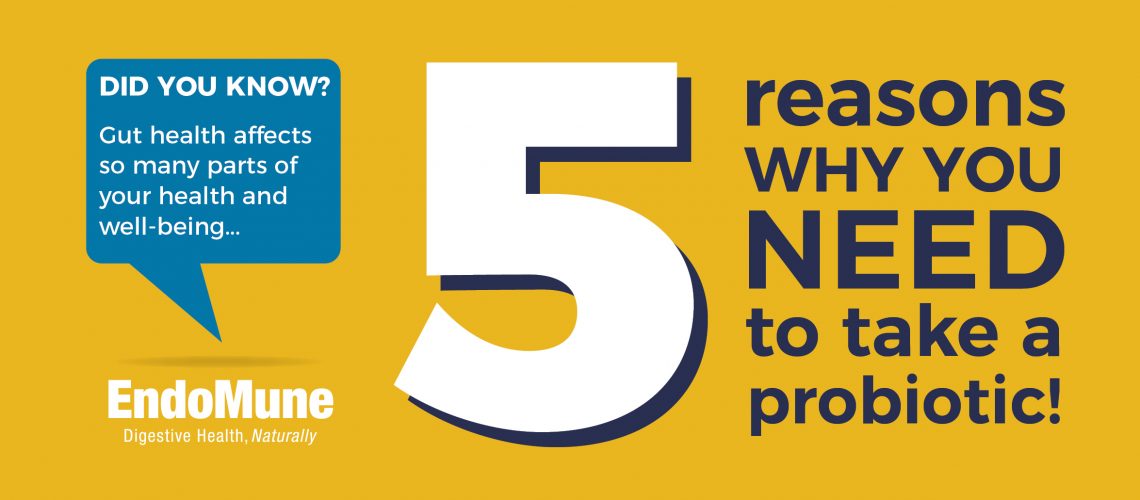Digest This
Click on the topics below to learn how probiotics can improve your digestive health, naturally.

5 Reasons Why You Need to Take a Probiotic
- @drHoberman
- Probiotics
If you’re seeing our blog for the first time — or the tenth time — you may be wondering why we share tips and news about the ever-changing, ever-shifting, ever-growing world of gut health many times each month in this space.
Our lives — full of work, life responsibilities and stress — leave us so little free time just to be…
Many of us fail to take even the very simple and necessary step of protecting our gut health by taking a probiotic every day.
Gut health affects so many parts of our own health and well-being, that a natural boost with a probiotic can make a world of difference to keep our bodies working just as they should.
Need some solid evidence that probiotics can make a world of difference to your health? Consider these five questions when you’re considering why you need to take a probiotic for your health, based on the latest research.
Have you taken a lot of antibiotics?
People rely so much and so often on antibiotics as a quick fix to solve all sorts of health problems — even minor ones like colds and sore throats — that doctors tend to over-prescribe them.
This excessive use has created an antibiotic-resistant world in which these drugs are quickly losing their ability to do the healing work they were meant to do.
The problems have become so acute that more people than ever are being sickened from exposure to superbug infections like Clostridium difficile (C. diff.) and some will die from them.
Antibiotics deplete the beneficial bacteria in your gut that keep your immune system strong. If you really need an antibiotic to solve a health problem, to take a probiotic two hours before taking an antibiotic to give those beneficial bacteria some extra time to reach and protect your gut.
Have you felt constipated lately?
Even a common gut-related health problem like constipation can be a sign of more serious health problems like irritable bowel syndrome (IBS) and kidney disease. Taking a probiotic restores the healthy balance of bacteria in your gut and lessens the need for harsher medications like mesalazine.
How are your emotions?
Disruptions in your gut-brain axis — the vital link that connects your gut, emotions and intestines — can add to challenges you may have with your sleep, mental health and mood. Taking a multi-species probiotic every day protects your gut’s ability to produce neurotransmitter chemicals like serotonin.
Could eating fermented foods help or hurt your gut?
Depending on how they’re prepared, fermented foods — such as pickles, yogurt, kombucha tea, pickles and miso — don’t provide the dependable gut health benefits that probiotics do and, in some cases, create more problems for your health than they’re worth.
Are you having trouble sleeping?
Shifts in your body’s circadian clock (the biological levers that control your wake-sleep schedule) due to work schedules or traveling long distances affect your gut health. Taking a quality probiotic that also contains a prebiotic (food for the good bugs in your gut) can help you get your sleep schedule back on track.
When evaluating a quality probiotic, you’ll want to consider a product that contains multiple strains of proven and beneficial bacteria and a prebiotic like EndoMune Advanced Probiotic and EndoMune Junior Advanced Probiotic.
BONUS QUESTION: How is your bone health?
If you’re having trouble maintaining your bone health, probiotics aid the production of butyrate (short-chain fatty acids created when your gut processes soluble fiber) that may increase bone mass.
European Journal of Public Health
There Is An Endomune Probiotic For Every Lifestyle
-
EndoMune Metabolic Rescue
$44.95 -
EndoMune Advanced Probiotic
$42.95 -
EndoMune Companion Pack
$112.93









